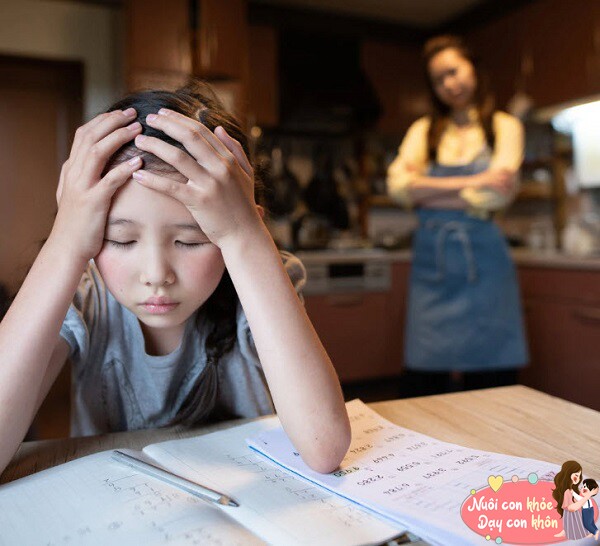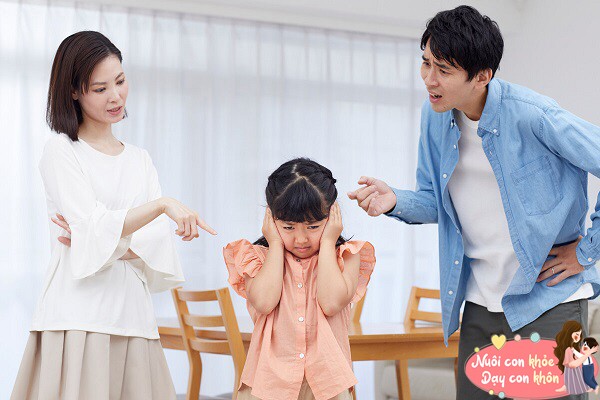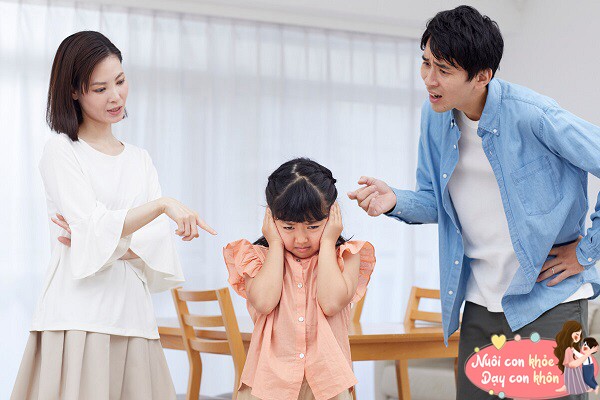Making these mistakes can hinder a child’s psychological development, personality formation, and social integration.

Having high expectations for children
Nowadays, many parents have high expectations for their children and tend to plan out their lives from birth, through preschool, elementary, middle, and high school, to college, career, marriage, and homeownership. Parents often intervene to some degree in each stage of their child’s development. This can sometimes lead to a lack of freedom for children in exploring and developing themselves in their own way.
During this time, there are all sorts of worries, comparisons, choices, hopes, disappointments, and frustrations. Parents often face pressure from society, friends, and even their own expectations.

Having high expectations.
This exhaustion comes not only from planning for the future but also from feeling the need to be perfect parents in the eyes of others. The reason for this exhaustion is that parents have high expectations for their children, including expectations about their development and future reciprocation.
With such high expectations, children may feel pressured to meet the set standards, leading to anxiety and a lack of confidence.
But why do parents have such high expectations for their children? Isn’t it wonderful for children to grow up to be independent, confident, and happy? However, the truth is that not all children develop at the same pace, and imposing a certain mold can hinder their ability to explore and develop.

Multiple caregivers beyond just the parents
In addition to parents, there are often other caregivers involved in a child’s upbringing, such as grandparents, uncles, aunts, and other family members. While this diverse environment can bring benefits, it can also create complexities if not well-managed.
When too many people are involved in childcare, conflicts can arise regarding educational methods. Each caregiver may have different approaches and opinions on child-rearing, which can be confusing for the child.
Children may feel confused when receiving contrasting messages from people they love and trust. This can impact their psychological development, leaving them unsure of whom to believe and follow.
Additionally, having too many caregivers can lead to a lack of consistency in setting rules and boundaries. If parents have one set of rules, but grandparents handle things differently, children may feel a lack of stability in their living environment. Consistency in parenting is crucial, as it helps children understand the limits and rules they need to follow.

Multiple caregivers beyond just the parents.

Excessive comparison with others
Comparing children with others is a common practice in many families. Parents often tend to place their children alongside other children to assess academic performance, athletic ability, or social skills. While the intention may be good, this practice usually has negative effects on children’s psychological development and personality formation.
When children are compared to peers or siblings, they often feel pressured to meet the standards set by others. This pressure can lead to anxiety, low self-esteem, and a lack of confidence. Children may begin to doubt their abilities and feel inadequate, leading to discouragement and a loss of motivation to learn.
Comparison can also create an unhealthy competitive environment. Instead of encouraging children to cooperate and learn from each other, this competition can foster resentment. Instead of seeking help from peers, children may become isolated and reluctant to share their difficulties, leading to psychological issues.

Over-interference in children’s lives
Parents naturally want the best for their children, but they often interfere too much in their lives, preventing them from becoming independent from a young age through adulthood.
When children go to school, parents may help carry their backpacks, and when teachers assign tasks, parents often jump in to help before the child even knows what to do.
While helping children with everything may provide a temporary sense of security, it also hinders their problem-solving skills and confidence in their abilities. Not to mention, having to oversee daily tasks like eating, dressing, bathing, and using the toilet leaves children with no personal space to develop.
Children who are “cared for” in this way often don’t have the opportunity to discover their personal interests or are not encouraged to explore their true passions. This leads to a lack of motivation and self-awareness.

Over-interfering in children’s lives.

Fathers spending less time in childcare
Fathers spending less time with their children not only affects the children’s psychological and emotional development but also diminishes the quality of their relationship.
To improve this situation, parents should find ways to collaborate and create opportunities for fathers to be more involved in childcare.
The advantages of this are twofold: first, it reduces the workload through sharing, and second, it allows both children and parents to build stronger relationships.
When both father and mother are involved in childcare, children gain a clearer understanding of each parent’s role in the family, leading to the development of emotional bonds and respect for both parents.

Ineffective consumption, leading to excessive economic pressure
The last and unavoidable reason why parenting is exhausting is financial pressure. Some parents believe in doing their best to provide their children with the finest things in life, but unreasonable consumption can lead to excessive financial pressure.
In today’s challenging economic climate, many families feel the need to spend more on education, health, and extracurricular activities for their children.

Ineffective consumption leading to economic pressure.
Parents often get caught up in a shopping race, from nutritious food and trendy clothes to expensive courses, hoping that these investments will secure a brighter future for their children. However, this often leads to financial strain, leaving parents feeling exhausted and pressured.
To reduce financial pressure, parents should plan their expenses more reasonably and realistically. Instead of focusing on extravagant purchases, prioritize essential needs and valuable experiences, such as spending quality time together.
Creating beautiful memories, such as going for a walk in the park or cooking together, can bring happiness without breaking the bank.




































